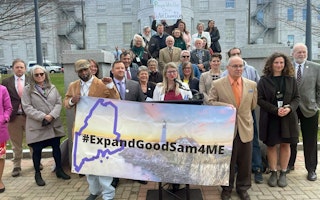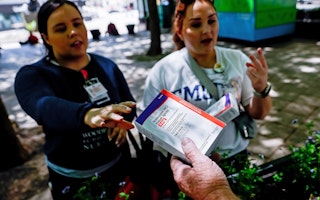Three Decades of Drug Policy Reform Work
Over the past three decades, the Open Society Foundations have been the largest philanthropic supporter of efforts to reform drug policy and promote harm reduction around the world, investing more than $300 million. George Soros, the Foundations’ founder and chair, recognized early on that a just approach to drugs was critical to building an open society. Together with grantees and partners, the Foundations have supported front-line work to promote an alternative approach to drug policy—one focusing on access to health care and social support, rather than on punishment and prohibition.
1994: Building the Foundations of Drug Policy Reform
George Soros and Ethan Nadelmann started the Lindesmith Center to conduct research related to drug policy reform and harm reduction. The center merged with the Drug Policy Foundation to become the Drug Policy Alliance in 2000, the largest organization in the world working to end the war on drugs. An early success: California’s “Prop 36,” which established a landmark treatment-instead-of-incarceration program and doubled the amount of state funds available for drug treatment.

1995: Preventing HIV Among People Who Inject Drugs
Open Society, through its newly established International Harm Reduction Development program, supported the establishment of the first efforts to distribute sterile needles and syringes to people who inject drugs, working in countries facing spiking cases of HIV related to injection drug use—including Albania, Russia, and Ukraine, among others.
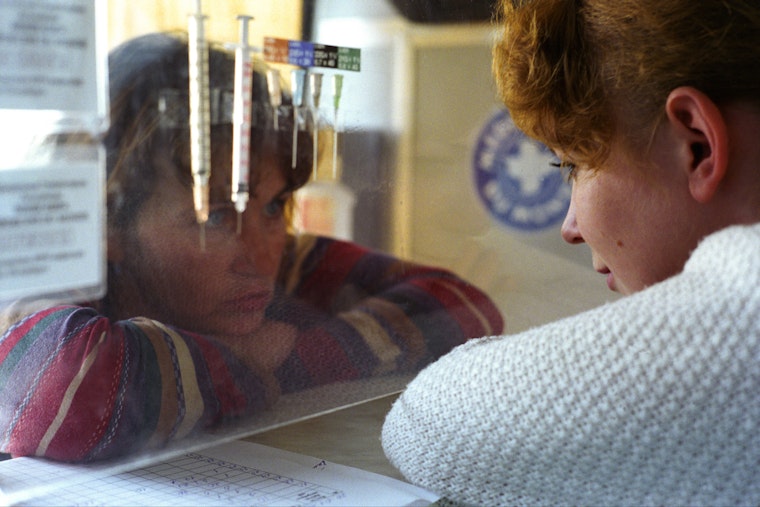
1996: Supporting the Legalization of Marijuana for Medical Use in the U.S.
George Soros personally funded advocacy efforts to legalize medical marijuana in California. The effort was successful. Two years later, Oregon, Alaska, and Washington followed suit.
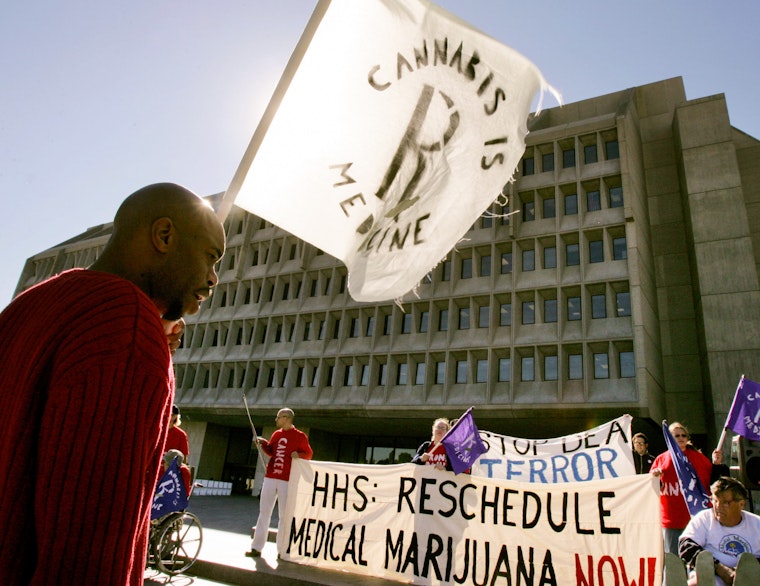
1998: Establishing U.S. Field Office
Open Society opened its first U.S. field office in Baltimore, investing more than $20 million to establish harm reduction services in Maryland. These efforts increased community access to naloxone, enhanced legislative protections, introduced medically assisted treatment, and built political acceptance for overdose prevention sites.

2002: Securing International Funding for Harm Reduction
Open Society and its grantees urged the newly established Global Fund to Fight AIDS, Tuberculosis, and Malaria to invest in needle and syringe distribution programs and methadone prescription. The Global Fund would go on to contribute over $800 million to harm reduction efforts worldwide.

2004: Reforming Drug Laws in Russia
Open Society and its grantees pressed for reform of Russian law, ending imprisonment for possession of tiny amounts of drugs and securing release or reduced sentences for 40,000 people incarcerated for drug offenses.
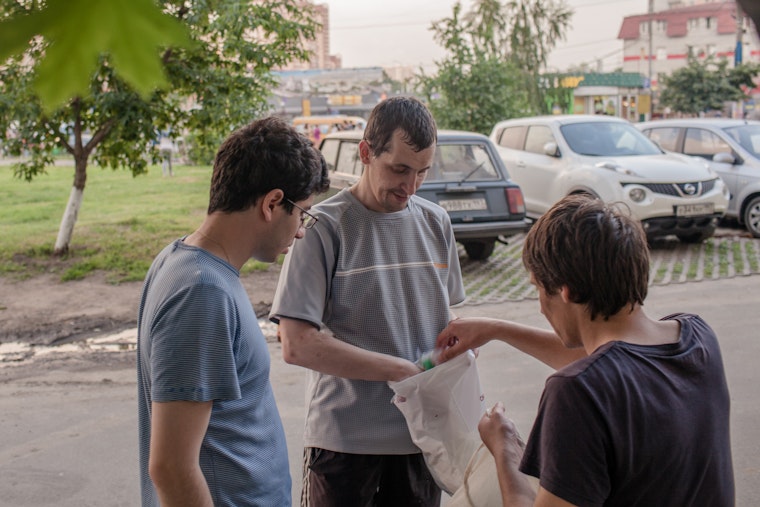
2005: Expanding Access to Treatment
Open Society and its partners successfully advocated for the World Health Organization (WHO) to add two medications used to treat opioid use disorder—methadone and buprenorphine—to the list of essential medicines and include people who use drugs in the agency’s guidelines on antiretroviral treatment for HIV. This helped spur treatment innovations in China, Ukraine, Malaysia, and Vietnam, among other countries.
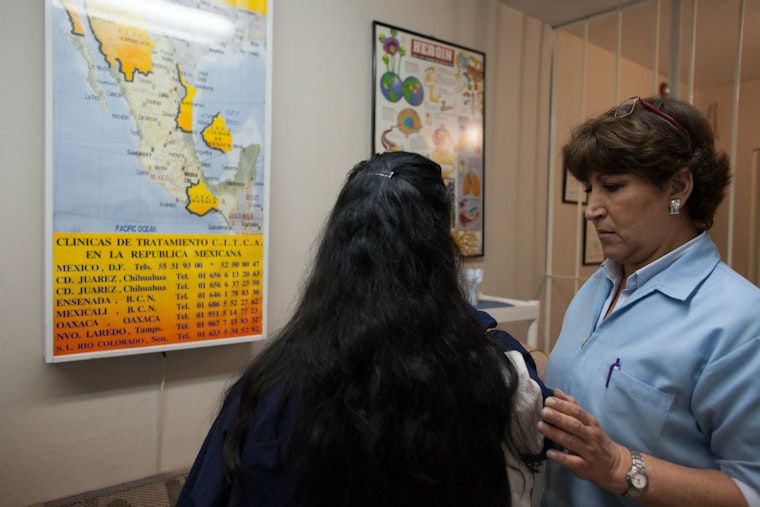
2006: Building International Solidarity
Open Society helped fund the first International Drug Users Congress in Canada. Participants issued the Vancouver Declaration, which called for universal access to harm reduction, evidence-based and voluntary treatment, and the end of incarceration and discrimination against people who use drugs.

2007: Reducing the Impact of Incarceration in the U.S.
Open Society led a coalition to advocate for the federal Second Chance Act, which authorized up to $165 million in federal grants for re-entry initiatives to assist those released from prisons and jails. The Act became law the following year.

2009: Former Presidents and Small-Scale Cultivators Call for Change
With Open Society’s support, three former presidents convened the Latin American Commission on Drugs and Democracy to evaluate the impact of the war on drugs in the region.
Open Society funded the First World Forum of Producers of Crops Declared Illicit. Groups from Africa, Asia, and Latin America issued the Barcelona Declaration, voicing the concerns of small-scale cultivators and calling for legal recognition of traditional uses of coca leaf, cannabis, and opium poppy, an end to forced eradication, and meaningful participation in the policies that impact their lives.
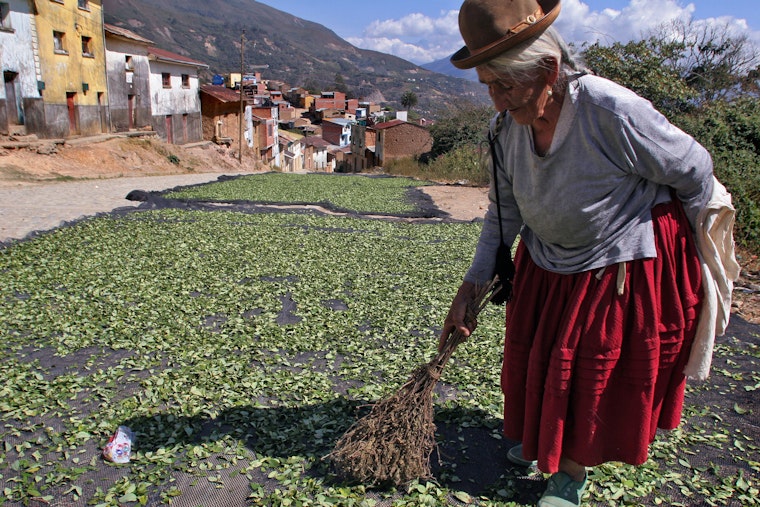
2010: Reforming Racist Drug Laws
Open Society led a coalition to build political support for the Fair Sentencing Act, which reduced disparities in prison penalties for possession of powder cocaine versus crack cocaine and eliminated the mandatory minimum sentence for possession of crack. The measure was enacted in August 2010.
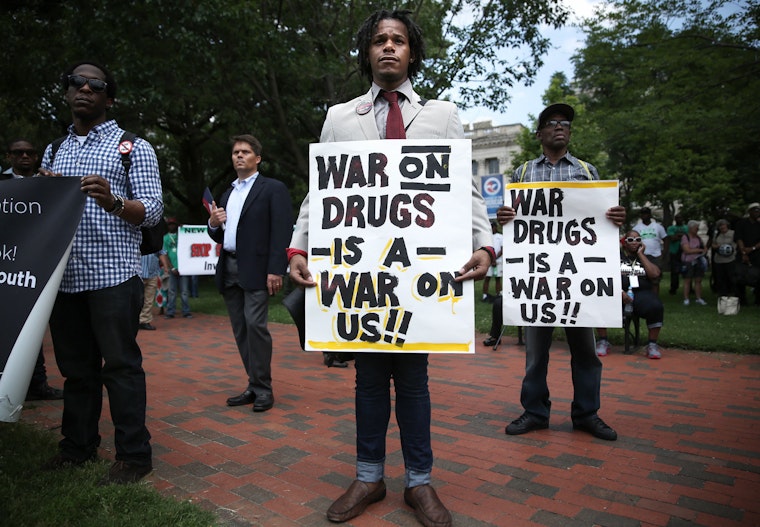
2011: Establishing the Global Commission on Drug Policy
The Foundations’ support helped establish the Global Commission on Drug Policy, comprised of former heads of state, senior diplomats, and prominent media personalities. Their first report brought senior world leaders together on the need for better drug policies.

2012: Confronting Abuses in Drug Detention
Open Society research and publications helped focus attention on pervasive human rights violations occurring in drug detention facilities and moved the Global Fund to end support for work inside these centers. Twelve United Nations agencies called for the closure of these centers. In Vietnam, thousands were spared detention, and centers were closed.

2016: Lifting U.S. Federal Ban on Funding Syringe Service Programs
Following years of advocacy by groups supported by Open Society, the U.S. Congress lifted its ban on funding syringe service programs, allowing federal dollars to support these services, except for the procurement of needles themselves.

2018: Advancing Right to the City
Open Society brought together activists from Brazil, Colombia, and Mexico working to enhance community safety and resilience in the Latin American war on drugs. Members of this network planned the launch of the first-ever community space for homeless people who smoke crack in Rio de Janeiro, Brazil, and won a landmark constitutional case in Colombia protecting the right of homeless people to access public restrooms.
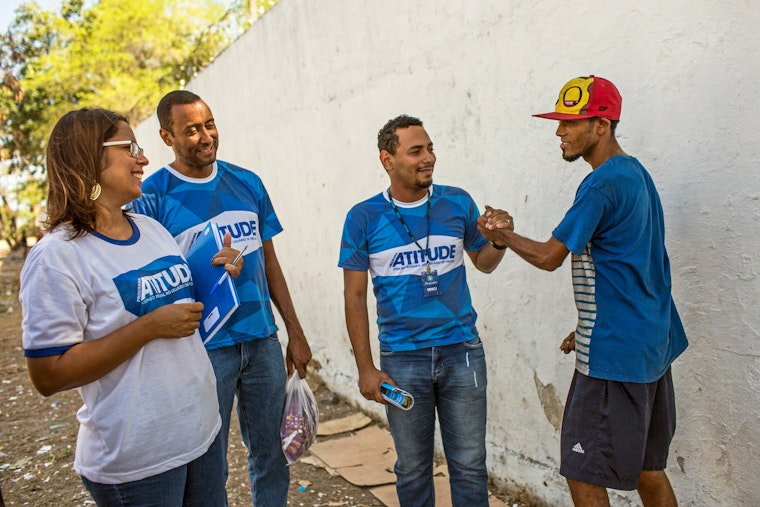
2019: Establishing Supervised Consumption Sites
With seed funding and technical assistance from Open Society, civil society groups in Ukraine and Mexico opened their first-ever drug consumption sites. These sites—where people can use drugs safely, without fear of arrest, and under the supervision of trained staff—were the first of their kind opened outside of resource-rich countries.
In Ohio, to reduce skyrocketing overdose deaths, funding from Open Society allowed our grantees to distribute naloxone—the life saving overdose antidote—and fentanyl test strips, to check the quality of the drug supply.

2020: Winning Decriminalization Worldwide
Open Society grantee the Drug Policy Alliance and its partners sought and won a ballot initiative making Oregon the first U.S. state to decriminalize personal possession of all drugs and to use tax revenue from legal cannabis sales to fund treatment, recovery, and harm reduction services. In Ghana, advocates supported by the Foundations secured passage of the Narcotic Control Commission Bill, de-penalizing drug possession and use, legalizing harm reduction services, and offering alternatives to incarceration.


